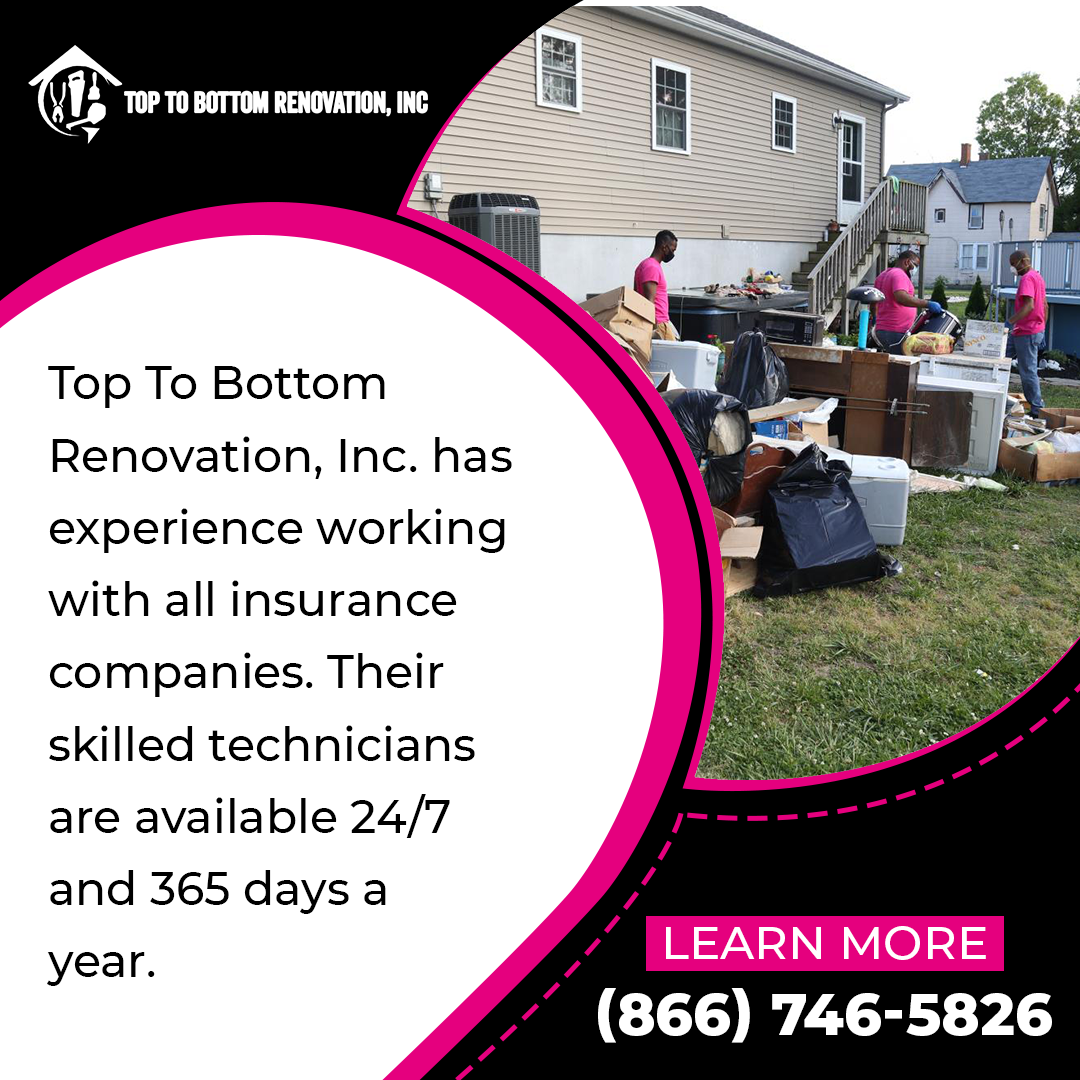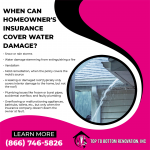Flooding and water damage are much more common issues than homeowners realize, even when they don't live near the coastline. Overflowing toilets, leaky faucets, malfunctioning appliances, etc., can lead to needing water damage restoration services.
Many homeowners then wonder if their insurance can cover water damage restoration. This question is often asked as the average water damage claim is around $11,000.

Homeowner's insurance can cover water damage restoration projects in Brandywine, Maryland. However, insurance may only cover certain types of water damage. This guide will explore what homeowner's insurance can and can't cover.
When Can Homeowner's Insurance Cover Water Damage?
A typical homeowner's insurance policy will cover a water damage restoration service when water damage is outside of the homeowner's control. Essentially, this all boils down to context. For example, homeowner's insurance typically covers a burst or frozen pipe.
However, insurance may not cover an overflowing toilet or a significant dishwasher leak. Insurance might deny this claim if the homeowner neglected maintenance needed on their appliances.
They may argue that a homeowner could have avoided water damage with proper repairs or maintenance. While context is always essential, common scenarios where water damage is covered include:
- Snow or rain storms
- Water damage stemming from extinguishing a fire
- Vandalism
- Mold remediation, when the policy covers the mold's source
- A leaking or damaged roof (typically only covers interior damage to the home, but not the roof)
- Plumbing issues like frozen or burst pipes, accidental overflow, and faulty plumbing
- Overflowing or malfunctioning appliances, bathtubs, toilets, etc., but only when the insurance company doesn't deem the owner at fault.
When Doesn't Homeowner's Insurance Cover Water Damage?
Besides insurance companies deeming owners at fault, homeowner's insurance doesn't cover other situations:
Flooding
When it comes to water damage restoration, homeowners typically think of flooding or heavy storms first.
As stated before, homeowner's insurance typically covers rain and storms, as long as there aren't any extenuating circumstances. For example, a homeowner who left a window open during a storm may have their claim denied.
Unfortunately, a standard homeowner's insurance policy doesn't cover flooding. Instead, homeowners will usually need to purchase a separate flooding insurance policy.
Improperly Maintained Pipes
Usually, the insurance company covers something like a burst pipe. However, an insurance company may not cover certain damage.
For example, let’s say a pipe starts leaking, and the homeowner doesn't inform their insurance company. The insurance company may cover initial issues caused by the leaking pipe (and repairs to the pipe itself).
However, if the homeowner neglects the leaky pipes for several days or more, their insurance company might not cover further damage like mold.
Sewage Backup
When sewage backup happens off a homeowner's property, the insurance company typically covers it. Sewage backup occurring on the homeowner's property, however, generally isn't covered.
Like flooding insurance, homeowners have the choice to purchase a separate sewage policy.
For Water Damage Restoration Services, Call Top To Bottom Renovation, Inc.
Top To Bottom Renovation, Inc. is the company to call for the best water damage restoration services.

Their company has experience working with all insurance companies. Their skilled technicians are available 24/7 and 365 days a year. Discover their extensive services by calling Top To Bottom Renovation, Inc. at (866) 746-5826!
































